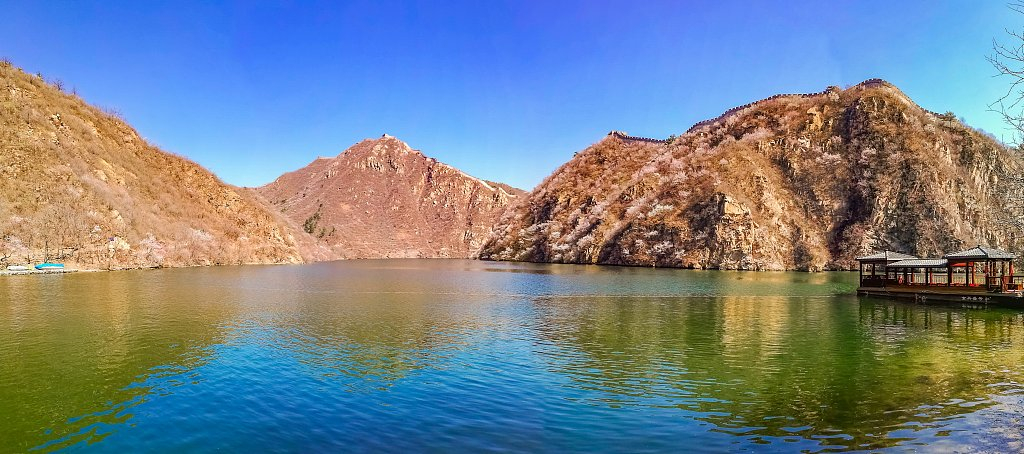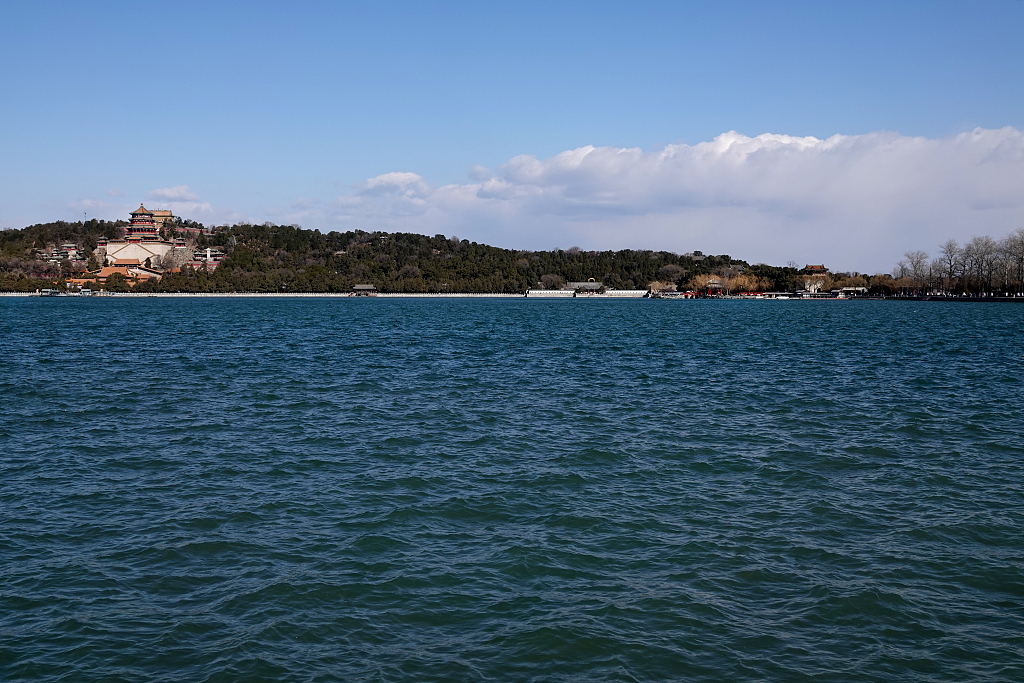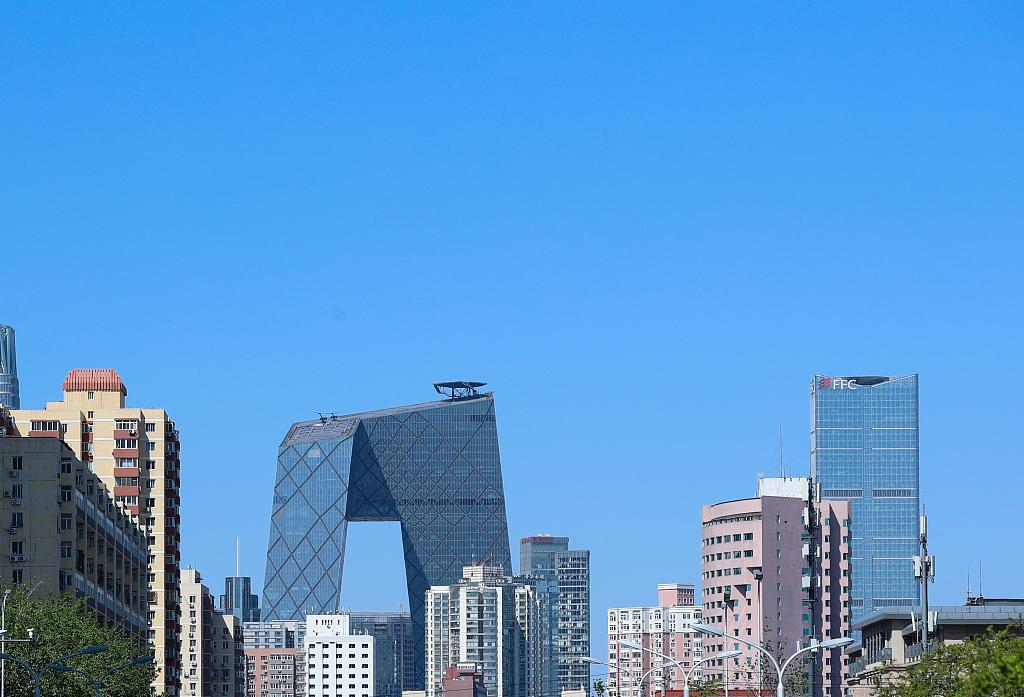Beijing saw visible progress in improving water and air quality in 2019, according to a communique released by the Beijing Municipal Ecology and Environment Bureau on April 27.
In 2019, the annual average concentration of potassium permanganate in Beijing's surface water stood at 4.62 mg/L, and the annual average concentration of ammonia nitrogen was 0.57 mg/L, down 5.9 percent and 41.8 percent from a year ago, respectively.

Haoming Lake in Beijing's Huairou District. /VCG
Haoming Lake in Beijing's Huairou District. /VCG
In 2019, Beijing monitored 96 sections of rivers in the five major water systems, with a combined length of 2,364.2 kilometers. The share of rivers with water quality rated third grade and above increased to 55.1 percent, while the length of rivers with inferior water quality decreased by 11.5 percentage points over the previous year.
Meanwhile, Beijing monitored 22 lakes with a water surface area of 7.2 million square meters and the proportion of lakes with a national quality rating at Grade III or above was 61.2 percent, according to the communique.
A total of 18 reservoirs with an average water storage capacity of 3.39 billion cubic meters were monitored in Beijing in 2019, with 85.2 percent having good water quality.

Air quality in Beijing also continued to improve as the municipality intensified efforts to prevent and control air pollution.
The concentrations of major air pollutants fell remarkably in 2019, said Liu Wei, an official with the bureau.
The average concentration of PM2.5 hit a record low of 42 micrograms per cubic meter, while those of sulfur dioxide, nitrogen dioxide and PM10 were 4, 37 and 68 micrograms per cubic meter, respectively.

Beijing has seen more blue skies. /VCG
Beijing has seen more blue skies. /VCG
In 2019, the number of good air quality days in Beijing totaled 240, or 65.8 percent of the total, 64 days more than in 2013, the year a national action plan was issued by the State Council to fight air pollution. Throughout the year, the capital only saw four days of heavy air pollution, 54 days fewer than in 2013.
Beijing actively advanced international exchanges and cooperation and shared green development experience on multiple platforms last year. A UN Environment report launched in March, 2019 hailed the improvement of air quality in the metropolis, said Liu.
(All photos via VCG)
(If you want to contribute and have specific expertise, please contact us at nature@cgtn.com.)
Source(s): China Daily